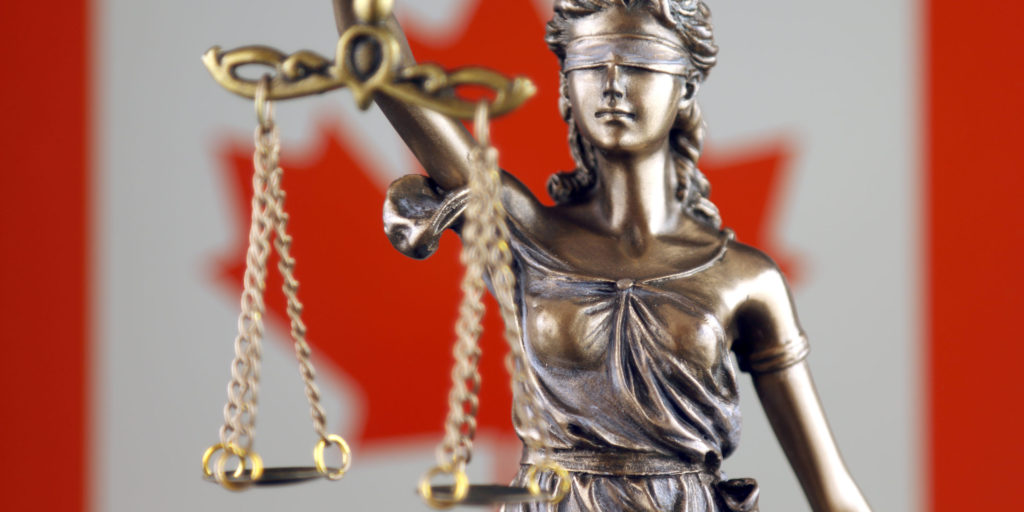- TLA library adds new databases to impressive resource collection - April 17, 2024
- TLA Gala ‘an auspicious celebration for the Toronto legal community’ - March 11, 2024
- TLAmonthly meetups foster community, collaboration - February 26, 2024
By Tony Poland, LegalMatters Staff • The Toronto Lawyers Association (TLA) invites lawyers to “take a deep dive into how we subconsciously organize patterns in our complex, information-filled world” in a unique seminar that delves into cognitive bias.
Criminal defence lawyer David Rudolf, joined by his wife and law partner Sonya Pfeiffer will present The Role of Cognitive Bias on Lawyers and the Practice of Law on Nov. 2, from 5:30 to 6:45 p.m. Participants can attend in person or via live stream. For details, click here.
Rudolf was featured in Netflix’s The Staircase, while Pfeiffer is a civil rights and criminal defence lawyer who is also an award-winning journalist.
“This fascinating presentation will appeal to all lawyers, regardless of practice area,” says TLA professional development manager Deirdre Harrington. “It’s a win-win. Participants get a one-hour EDI professional content while learning some vital information about how unconscious bias can impact their thinking and decision making.”
The husband and wife duo, both counsel at Brauti Thorning LLP, will use a real-life case study from the trial of Michael Peterson, documented in The Staircase, to demonstrate how unconscious bias plays out in a complex and high-profile criminal trial.
The Netflix mini-series tells the true story of Peterson, a crime novelist accused in the murder of his wife Kathleen, who was found dead at the bottom of a staircase in their home.
Session will be interactive
Harrington says the session will be interactive, with Rudolf and Pfeiffer conducting polls and putting questions to the audience. Participants are also encouraged to ask questions.
“This promises to be a lively and interesting forum,” she says. “Our speakers have had impressive careers, both in and out of the courtroom. People will be talking about this seminar for years to come.”
Rudolf started his career as a public defender in New York City. He has taught at law school and has lectured on various topics at dozens of continuing legal education courses throughout the United States.
He has held various leadership positions in the American Bar Association’s Criminal Justice Section, the National Association of Criminal Defense Lawyers, the North Carolina Academy of Trial Lawyers and the North Carolina Advocates for Justice. He was named to the inaugural class of the North Carolina lawyers Hall of Fame.
Rudolf won acclaim for his work in The Staircase and has lectured about the case throughout the world.
Pfeiffer began her career as a public defender, then transitioned to a large corporate law firm where she handled white collar criminal matters, civil litigation and pro bono death penalty work.
Along with her legal experience, Pfeiffer is an award-winning journalist and documentary filmmaker. She spent more than a decade as a television news reporter in the U.S. and Europe before earning her law degree. During her time as an investigative reporter. Based in Paris, France, Pfeiffer covered major international stories including the Yitzhak Rabin assassination in Tel Aviv and the signing of the Dayton Peace Accords.
She is the owner of Elder Gallery of Contemporary Art, a North Carolina-based gallery with a focus on content-driven contemporary art.
Rudolf and Pfeiffer also launched Abuse of Power, an award-winning podcast that is available on Audible.
Unconscious bias impacts everyday decision-making
The purpose of their upcoming presentation is to demonstrate how unconscious bias impacts everyday decision-making. Participants will learn how and why they approach certain information with underlying biases. The goal is to make people more aware of the way they assess information and make decisions in the future.
According to the program outline, relying on “mental shortcuts” has the potential “to skew or undermine our ability to evaluate, interpret, judge, use, and remember information, as well as in the way we make decisions.”
“The tendency of the human brain to perceive information through a filter of personal experience and preferences impacts how we handle cases and litigants, as well as our understanding about each other and ourselves,” the outline states “It has a direct correlation to how we categorize right and wrong, good facts and bad facts, friend or foe.”
The registration cost to members is $49 plus HST. Friends of the TLA and non-members will be charged $99 while member licensing candidates and new calls pay $25. Complimentary tickets are available to undergraduate law school students who register before Oct. 28.
For information on becoming a TLA member, click here.
More from the Toronto Lawyers Association:

